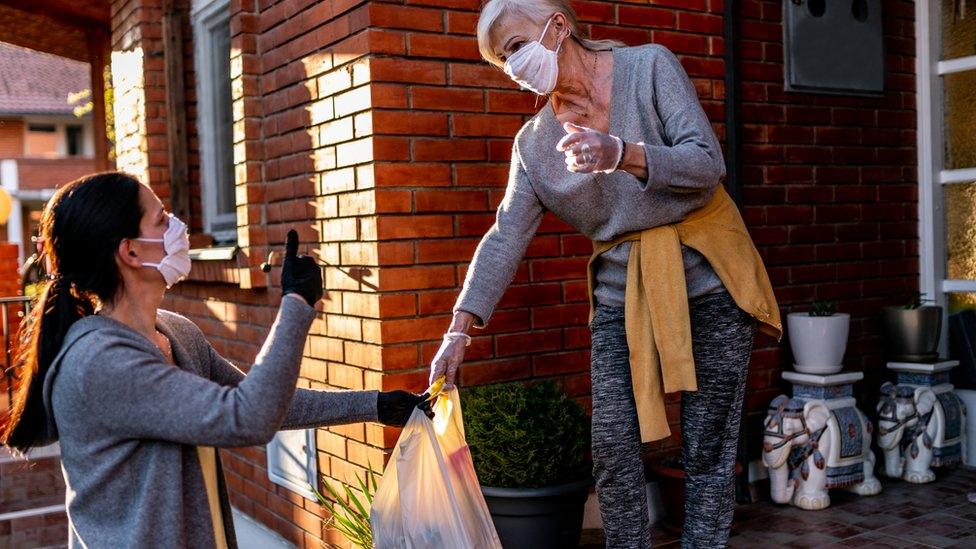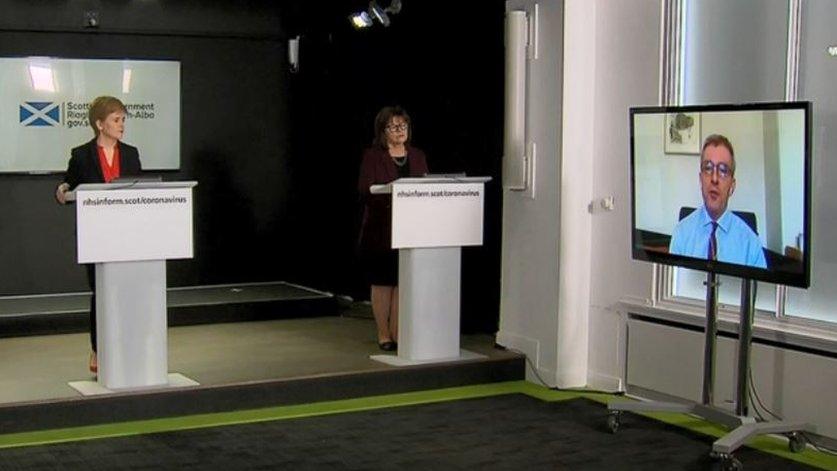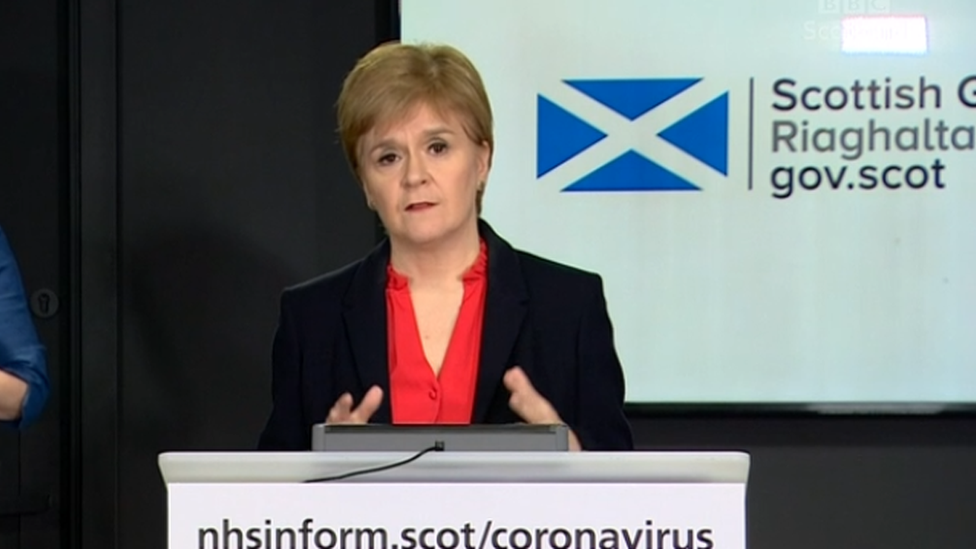Coronavirus: Essential deliveries begin for most vulnerable
- Published
- comments

People who are most at risk of being severely ill if they contract coronavirus have started to receive home deliveries of essentials.
Those who are shielding have begun receiving letters from the chief medical officer, highlighting support and setting out how they can stay safe.
Among the support on offer is a text message service to help organise deliveries of medicine and food.
Those with no access to mobile phones can register through local councils.
Those who received the correspondence this week and signed up to the text service have been given the option to begin weekly deliveries of essential foods including soup, pasta, rice, fruit and vegetables, tea and coffee and biscuits, as well as toiletries.
Other measures which are being put in place include the delivery of specialist medicines - including chemotherapy drugs -being delivered via local health boards, the scaling up of deliveries of medicines from community pharmacies, and supermarkets ensuring priority delivery slots are given to those with the highest clinical risk.
Initial estimates of the numbers involved were 150,000-200,000, however, it is now believed the number of people who qualify could be appromimately 120,000.
The deliveries, led by Brakes and Bidfood, began to go out on Friday.
'Sign up immediately' if you receive letter
Deputy First Minister John Swinney said the new services were for those without support structures around them to help them.
He said these included "people with specific forms of cancer, severe respiratory conditions, certain rare diseases, recipients of organ transplants, those on immunosuppression therapies and pregnant women with congenital heart disease".
He added: "Many people will have support from friends and family but I would encourage everyone who receives a letter and requires support to sign up to the service immediately - this will ensure you have adequate supplies of food and essential items during these challenging times.
"It is vitally important that people at highest clinical risk are shielded as much as possible, and our advice alongside this text service will help protect people from the detrimental effects of the virus, including disruption to health and social care and key services."
Mr Swinney also said local services "must prioritise those most in need". He said by doing so, Scotland would protect them, which in turn would "reduce the burden on the NHS and save lives".
"By continuing to work together, we can all play our part in keeping everyone safe", he added.
- Published30 March 2020

- Published3 April 2020
